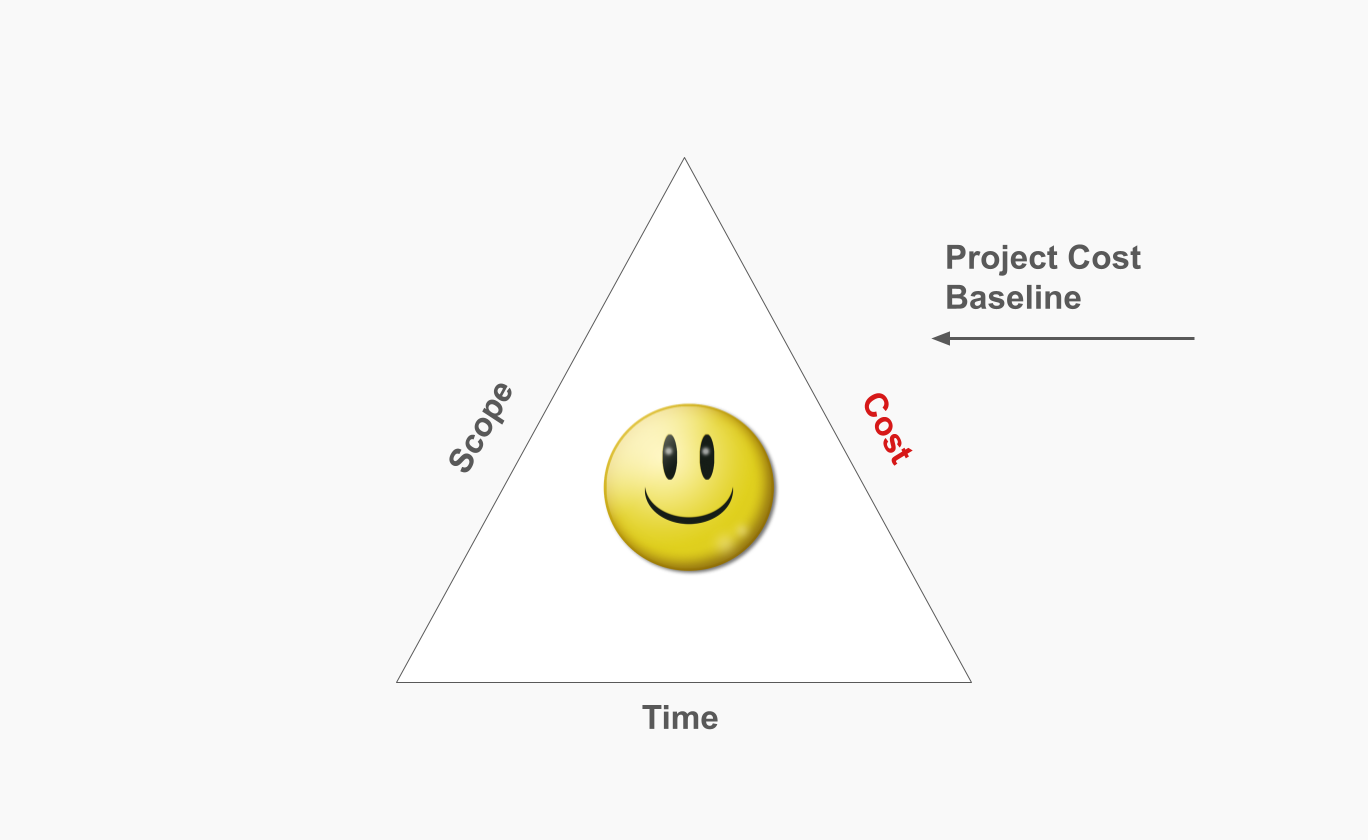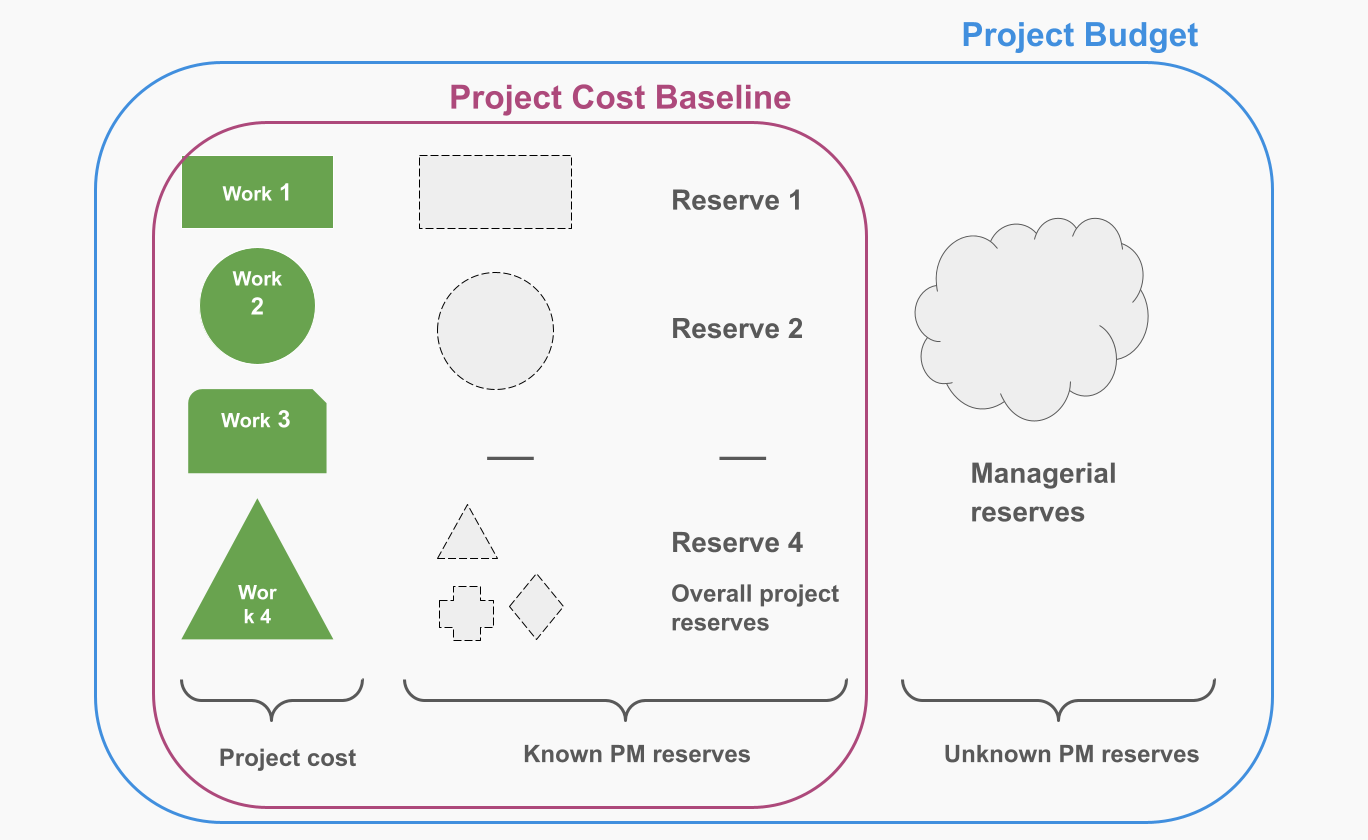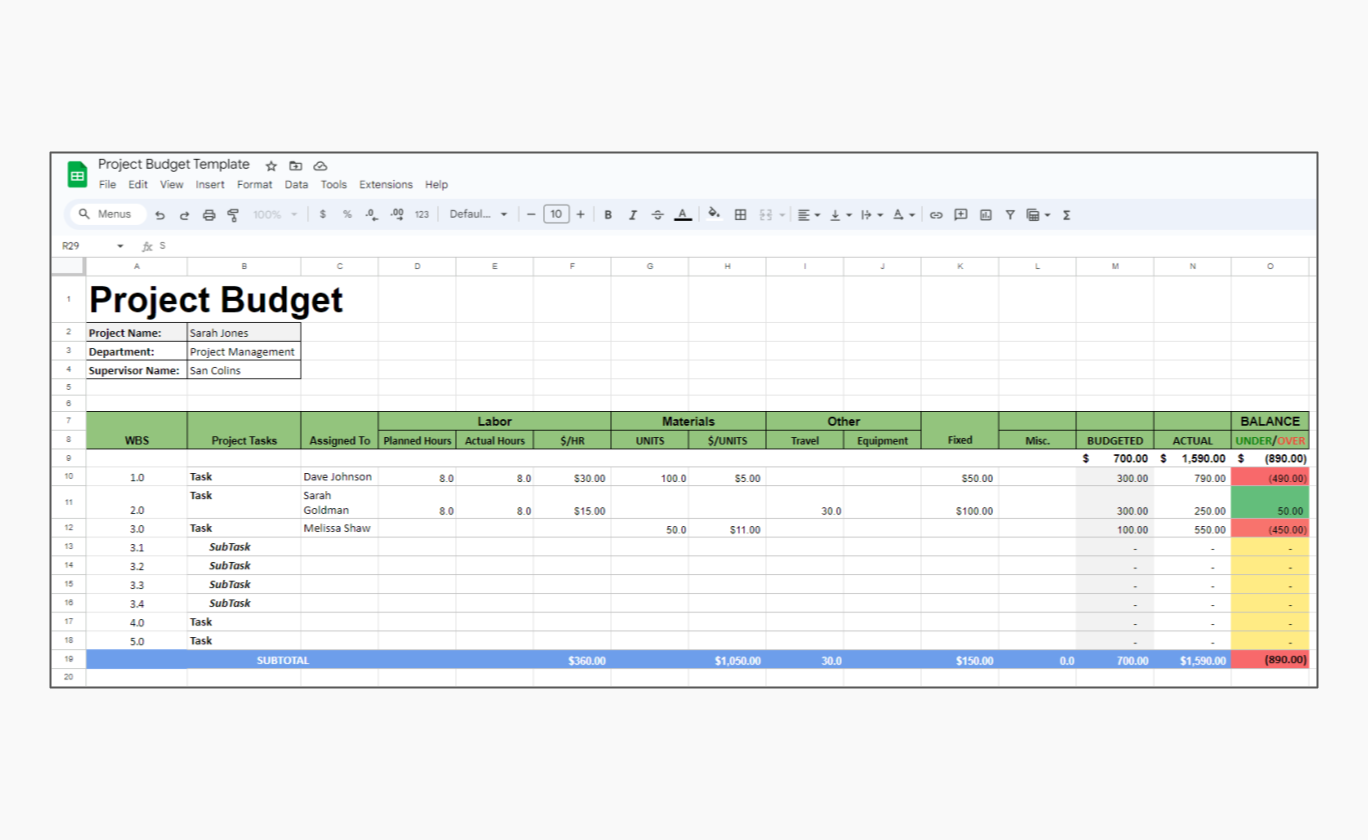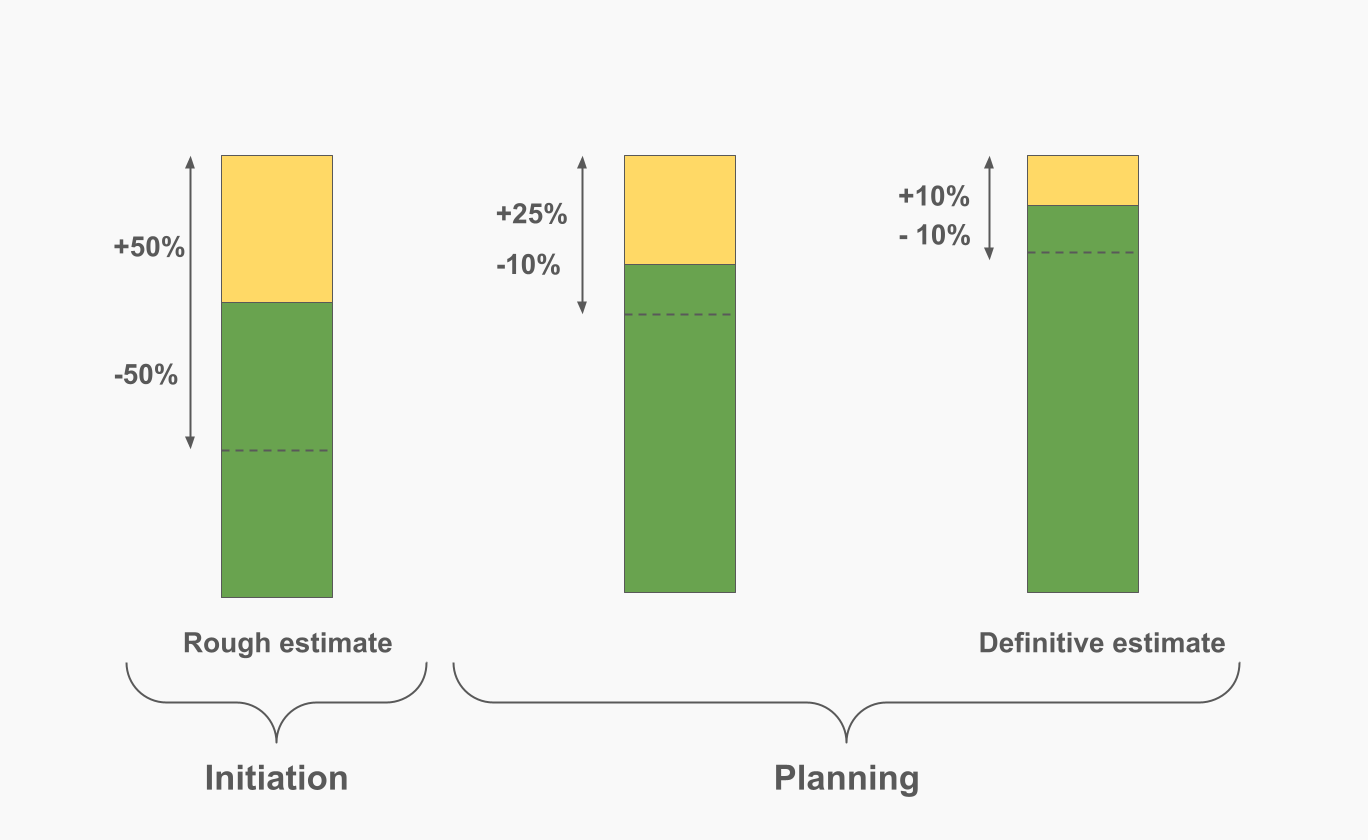Project Cost Management: A Comprehensive Guide with Project Budget Template
August 5, 2024 · 10 min read
After we determined the project scope and calculated duration, we have come to the last side of the project management triangle — project cost baseline. This comprehensive guide provides an in-depth understanding of cost management in project management, including estimation techniques, accuracy, and control measures.
What is Cost Management?
The primary objective of cost management is to estimate the project cost and proactively manage finances, ensuring that a project is completed within its approved budget.

It is important to note that the project manager does not always manage the finances. While this can happen, it is not always the case. Often, especially in IT, you are given a team rather than a budget. In such a scenario, you need to focus on managing human resources.
In some situations, you may have a combination where you are given a team and a budget for purchases. Here, you deal with the cost management, but it isn't the overall project cost, just specific components.
Project Cost Baseline vs Project Budget
There are two key terms that show up when discussing cost management. So, it is important to see the difference and not to get confused.

The project cost baseline is a time-phased budget serving as a benchmark for measuring cost performance, including authorized, estimated costs for scheduled activities. On the other hand, the project budget is the total funds allocated for the project, including the cost baseline, contingency reserves for identified risks, and managerial reserves for unforeseen risks.
Contingency reserves cover known risks like travel expenses or employee turnover, while managerial reserves address unknown risks and are added to the budget by a sponsor.
Managers primarily focus on the project cost baseline but often use "budget" to refer to it in common language.
Project Budget Template
A well-structured project budget template is essential for effective cost management and provides a clear financial framework for the entire project. Here is a project budget template in Google Sheets (you can download the file to open in Excel) so that you can get an outline of its key components.

How to Estimate Project Cost?
Accurate cost estimation is crucial for effective cost management. Various techniques are employed to estimate project costs, each with its unique approach and application.
The first five methods of cost estimation are similar to duration estimating techniques explored earlier, meaning methods used for duration estimation can also be applied to cost estimation. Please refer to this blog article to learn more about them.
- Expert Judgment. Leveraging the experience and knowledge of experts to estimate costs based on historical data and expertise.
- Analogous Estimating. Using the costs of previous, similar projects as a basis for estimating the costs of the current project.
- Parametric Estimating. Utilizing statistical relationships between historical data and other variables to estimate project costs.
- Three-Point Estimating. Calculating an average of the best-case, most likely, and worst-case cost scenarios to derive a more accurate estimate.
- Brainstorming and Its Variations. Generating cost estimates through collaborative sessions that involve project stakeholders and team members.
Now let’s explore the techniques that are only applicable for cost management:
- Bottom-Up Estimating. It involves evaluating and summing estimates from lower-level work breakdown structure (WBS) nodes to estimate the total project cost. This method is reliable and accurate but is time-consuming and impractical during early project stages when detailed decomposition is unavailable.
- Top-Down Estimating. It uses the work breakdown structure, starting from the top levels. For example, if a client has a $5,000 budget, this method assesses if tasks can be completed within it. If costs exceed the budget, optimization is attempted. This rapid assessment technique is crucial for limited budgets.
- Quality Costs. Decide how much effort to invest in project quality to satisfy the client and improve processes. Some projects may require a high initial cost for quality, while others may benefit from launching a rough product and improving it over time. This decision impacts the project cost.
- Vendor Bid Analysis. If your project funds are used to pay for external services, you should consult with vendors to determine the costs of outsourced components of the project.
Estimation Accuracy
 The accuracy of cost estimates is paramount for successful project cost management. Initial estimates are often rough and may include a broad range of potential costs. Typically, such estimates have an accuracy of +/- 50%.
The accuracy of cost estimates is paramount for successful project cost management. Initial estimates are often rough and may include a broad range of potential costs. Typically, such estimates have an accuracy of +/- 50%.
As the project progresses and more information becomes available, estimates should be refined to improve accuracy that can be around +25% to -10%, and even up to +/- 10% for the definitive estimates.
Achieving 100% accuracy is impossible and should be factored into estimates.
Controlling the Project Cost Baseline
Controlling the project cost baseline is a crucial aspect of project cost management, ensuring that the project remains within its approved budget. This process involves several key activities:
- Monitor Project Expenditures. Keep a detailed record of all costs incurred during the project.
- Compare Actual Costs to the Baseline. By regularly comparing actual expenditures against this baseline, project managers can identify any deviations or variances.
- Identify Variances and Manage Changes. By identifying variances early, project managers can investigate their causes and take corrective actions to address them such as resource reallocation, adjusting project scope, or implementing cost-saving measures.
Conclusion
Project cost management is a fundamental aspect of project management that ensures financial control and efficiency. By understanding the various cost estimation techniques, maintaining estimation accuracy, and effectively controlling the project cost baseline, project managers can deliver projects within budget and achieve financial success.
Overall, project costing is relatively straightforward for managers as it essentially derives from prior activities: time management and scope management. If you have correctly planned, understood who is doing what, and identified what to procure and from whom, creating a cost management plan and managing costs becomes simpler.
About the Author
Yana Revushkina is a project manager with extensive experience in managing complex projects and leading diverse teams. With a strong background in quality management, Yana is dedicated to implementing strategies that enhance team performance and project outcomes. Her expertise lies in creating streamlined processes and fostering collaborative environments that drive success and innovation.


